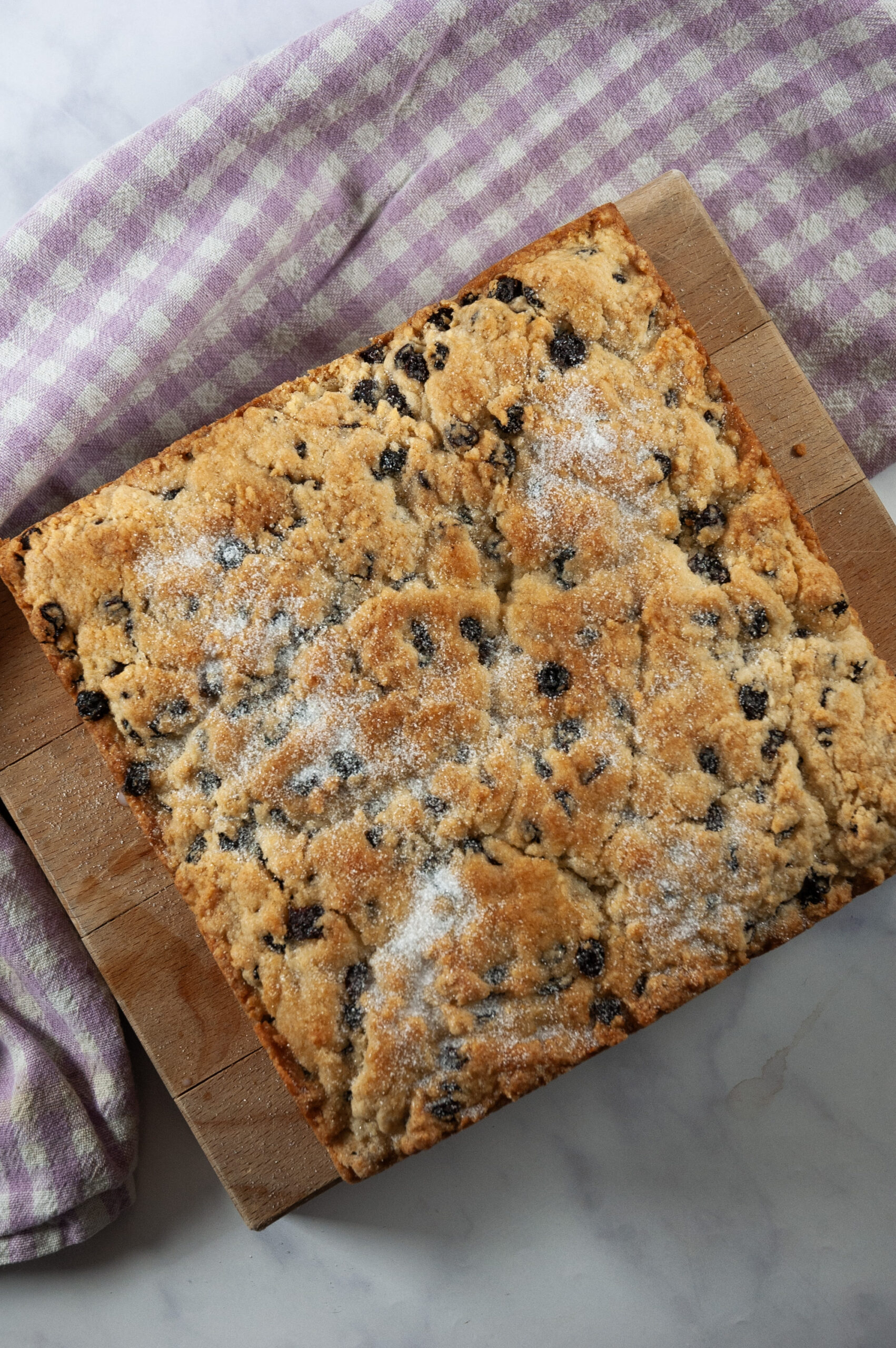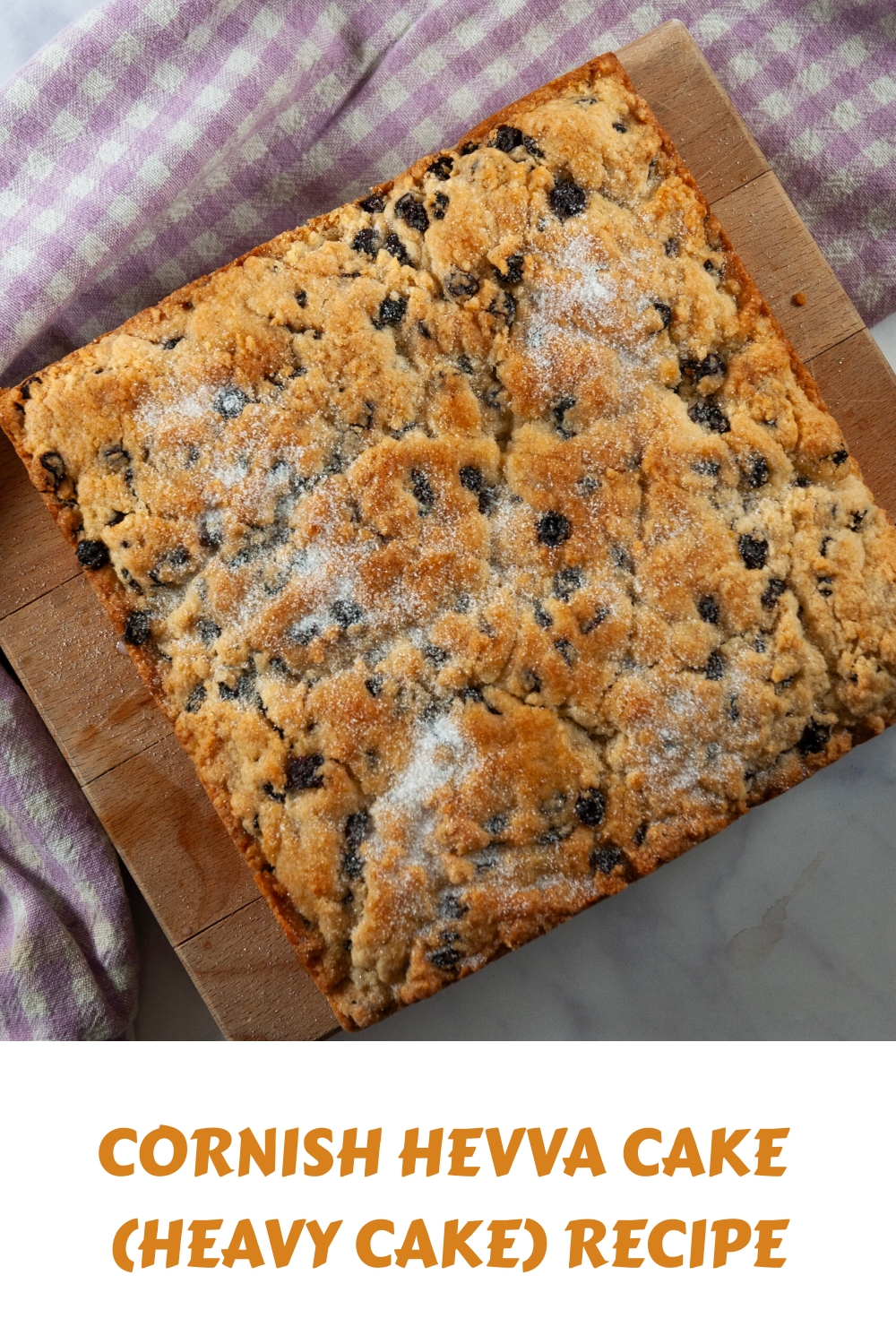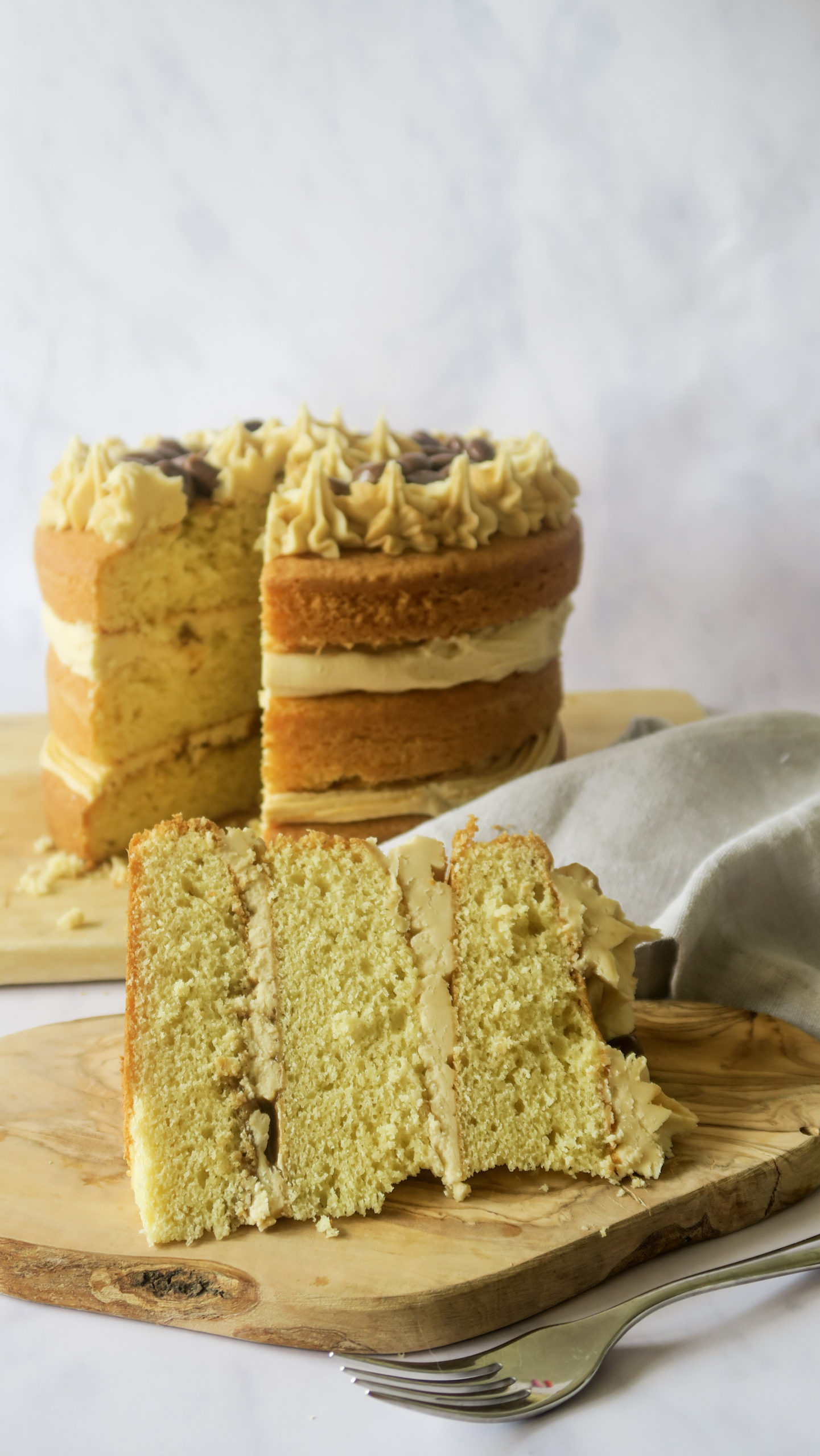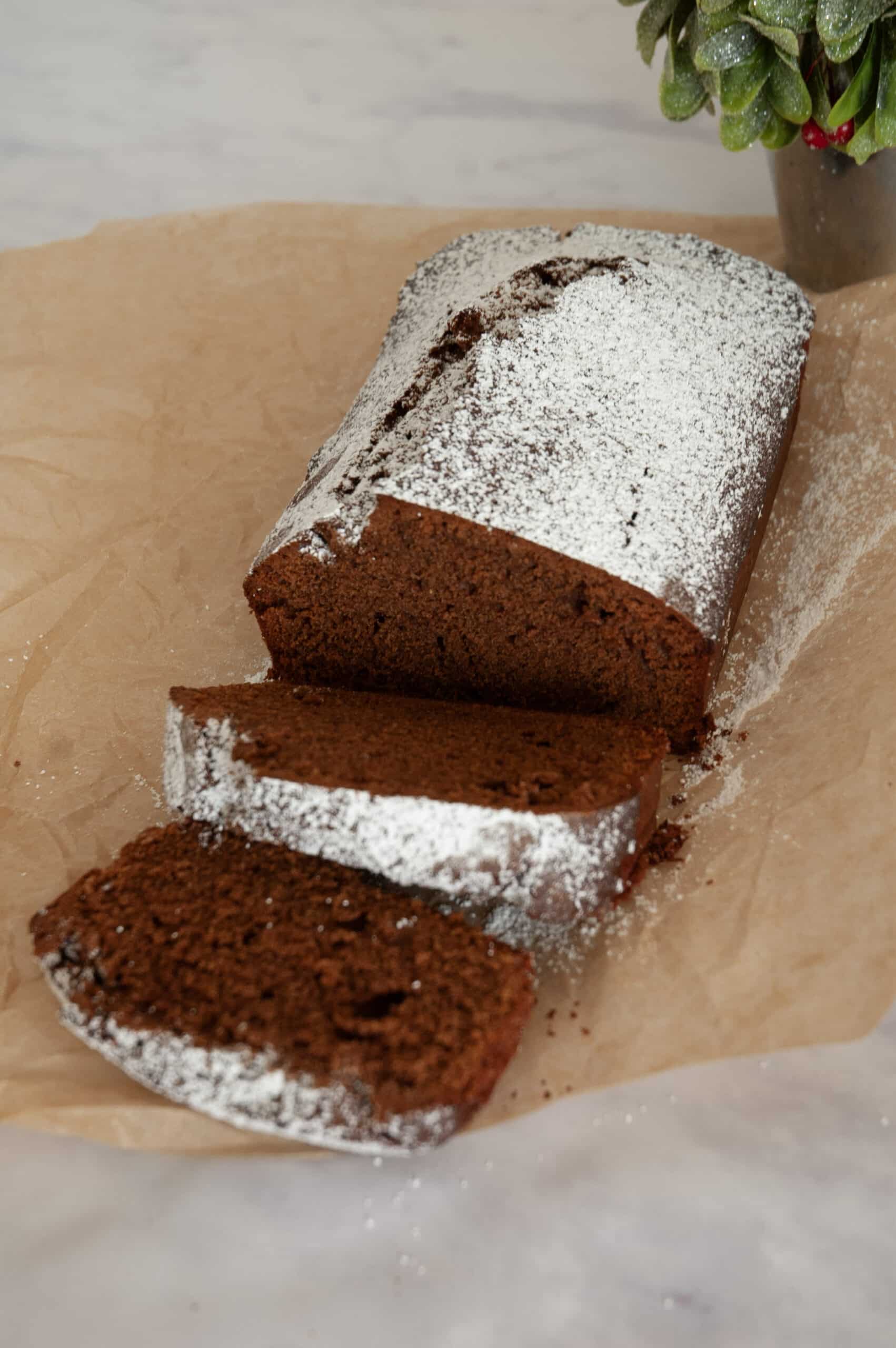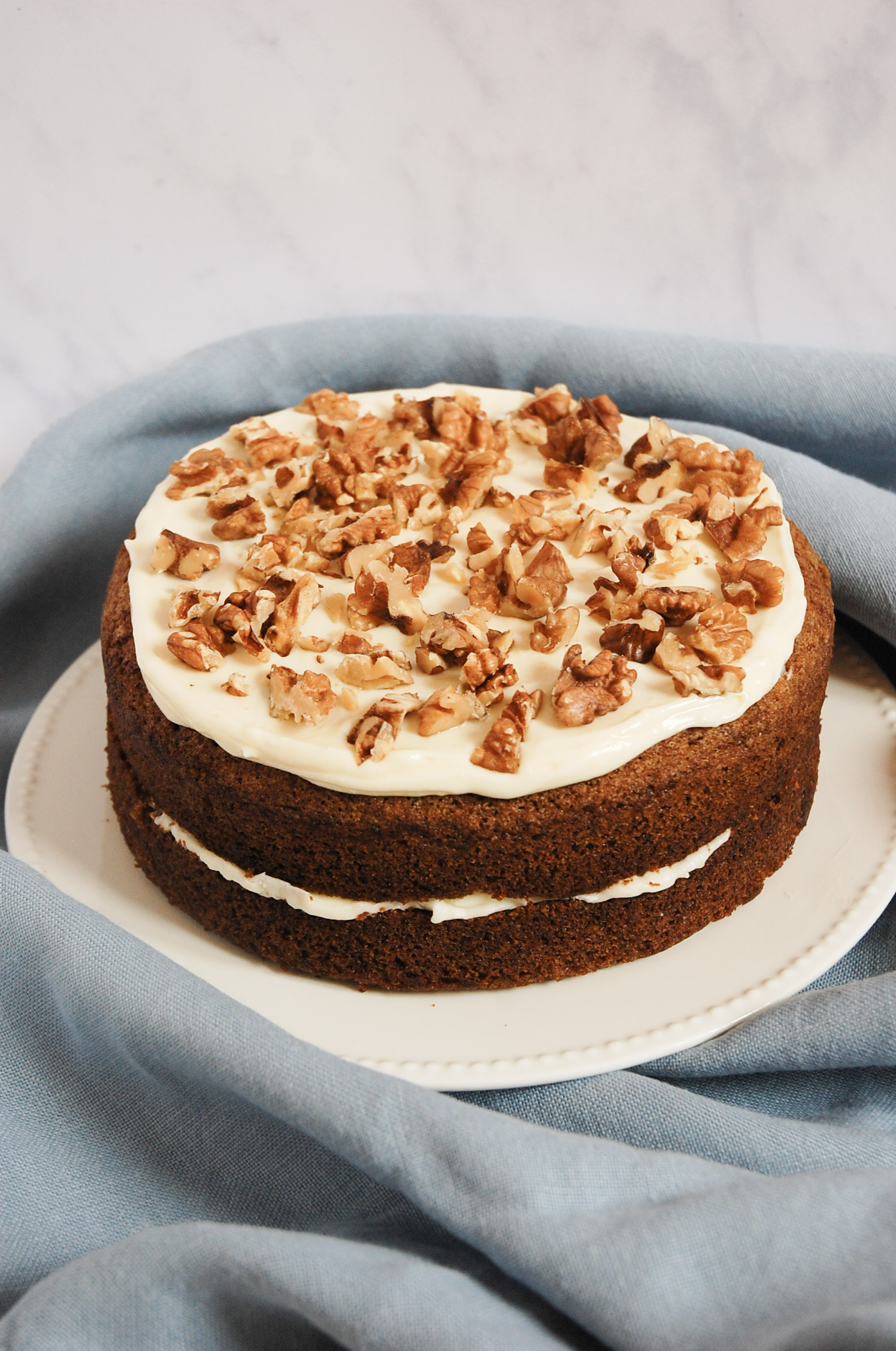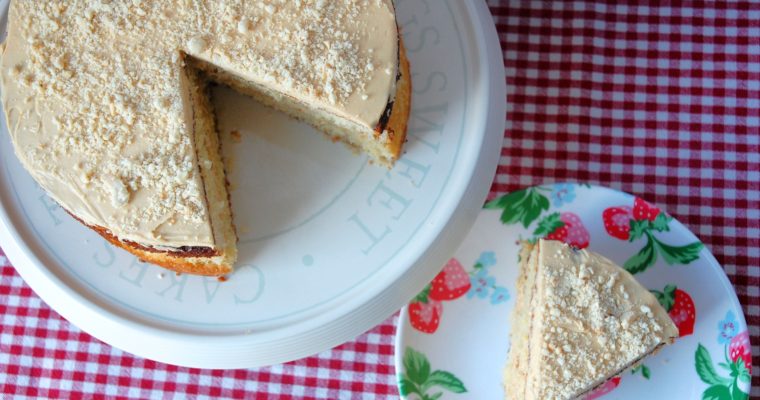Cornish Hevva Cake (Heavy Cake) Recipe
A delicious treat to be served with tea or coffee, Cornish ‘hevva’ cake is also known as ‘heavy’ cake. It is definitely not ‘heavy’ though! Similar to a rock bun, this sliced cake is fruity and lightly flavoured with lemon zest.
Cornish Hevva Cake
Since I am Cornish, I couldn’t not make Cornish hevva cake. My grandma used to make this traditional cake when my mum was little. She didn’t add lemon zest to hers but I think the zest really compliments this tray bake. It’s a brilliant bake to make when you have no eggs in the house too. The recipe only calls for self-raising flour, butter, currants, milk, sugar and lemon zest. So simple!
Cornish hevva cake was traditionally make by fishermen’s wives for their fishermen husbands. The word ‘hevva’ derives from the Cornish word ‘huer’ which means to look out or watch. The fishermen, known as “huerers,” would keep watch on the cliffs for shoals of pilchards (a type of small fish) and signal their arrival by shouting “Hevva! Hevva!” This would alert the community to the opportunity to catch the fish.
The hevva cake would have been a welcome snack for returning fishermen after a successful fishing trip. The dense and crumbly nature of heavy cake would have made it a substantial and filling bite to eat. Traditionally older recipes in Cornish cookery, it may have also contained spices such as cinnamon and nutmeg.
My Grandad worked on lighthouses all over the UK, so I reckon he would have loved this as a snack once he got home from long trips at sea.
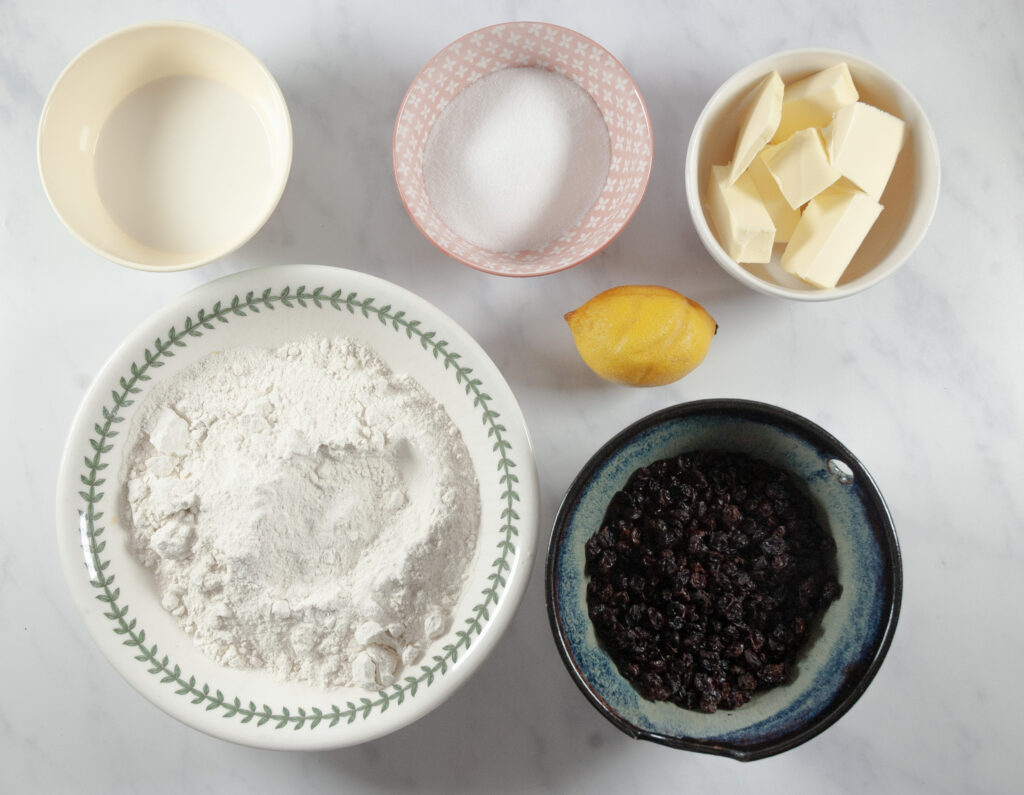
Ingredients needed for hevva cake
Scroll down to the recipe card for exact quantities.
Self-raising flour – some heavy cakes use baking powder but we don’t need to with this recipe as the self-raising has a raising agent in it.
Butter – traditionally lard would have been used.
Currants – if you are out, you can use raisins or any other dried fruit instead.
Castor sugar
Whole milk – semi-skimmed will do as well.
Lemon zest – this is optional. Don’t worry if you don’t have one.
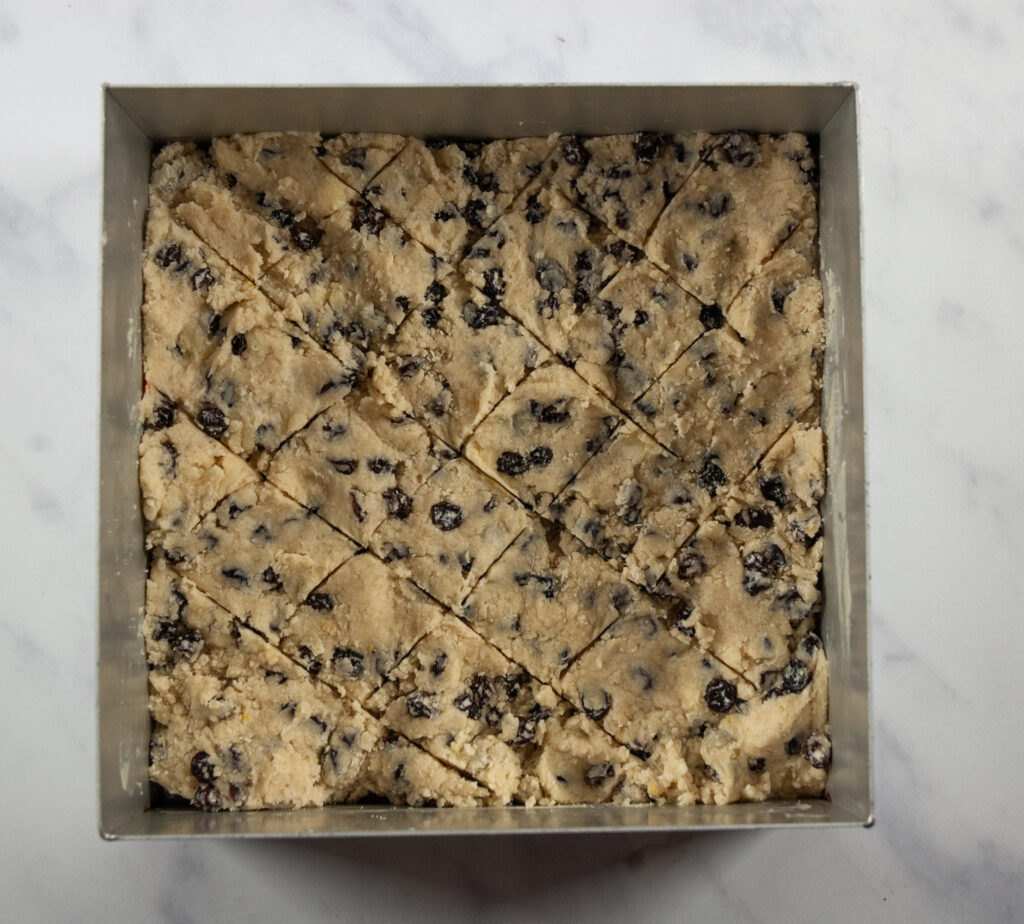
Equipment Needed
- A large bowl
- Grater for zest
- Mixing spoon
- A deep square cake tin
- A sharp knife for making the criss cross pattern
- Pastry brush
- Baking paper to line the tin
Perfect for St Piran’s Day
If you’re celebrating St Piran’s Day on March 5th, this traditional Cornish hevva cake would be a good celebration cake to make! What is St Piran’s day, I hear you ask. Well, St Piran is the patron saint of Cornwall, of the tin miners that once worked there.
Legend has it that Saint Piran, an Irish abbot, was said to have been tied to a millstone and thrown into the sea by the Irish king. Miraculously, Piran floated across the Celtic Sea and landed on the Cornish coast near Perranporth. There, he established a Christian community and is credited with discovering the process of extracting tin from the local tin-bearing rocks.
You’ll find many events going on around Cornwall to celebrate the day, from parades to market stalls and traditional Cornish music. You can find out what’s on across the county over at Proper Cornwall.
Many people wear black and white to commemorate the day and represent the colors of the Cornish flag.
Gool peran lowen! (This is how people wish each other a good celebration on St Piran’s Day in Cornwall).
How to make hevva cake (step by step)
Step 1 – Rub the butter into the flour until it resembles breadcrumbs.
Step 2 – Mix in the caster sugar, currants and lemon zest. Add the milk to the dry ingredients and combine to form a stiff dough.
Step 3 – Line your cake tin with baking paper and press the dough into tin. Make a criss-cross pattern on top of the cake by using diagonal lines.
Step 4 – Bake at 180 degrees in preheated oven for 30 minutes or until golden brown.
Step 5 – Allow to cool for a few minutes. When still warm, brush the cake with milk and sprinkle on some sugar. Serve with a cup of tea or coffee!
Bake heavy cake with your kids
Hevva cake would make such a good bake for young children to do. The method is so simple and takes no time at all. Just what you want for children who have short attention spans!
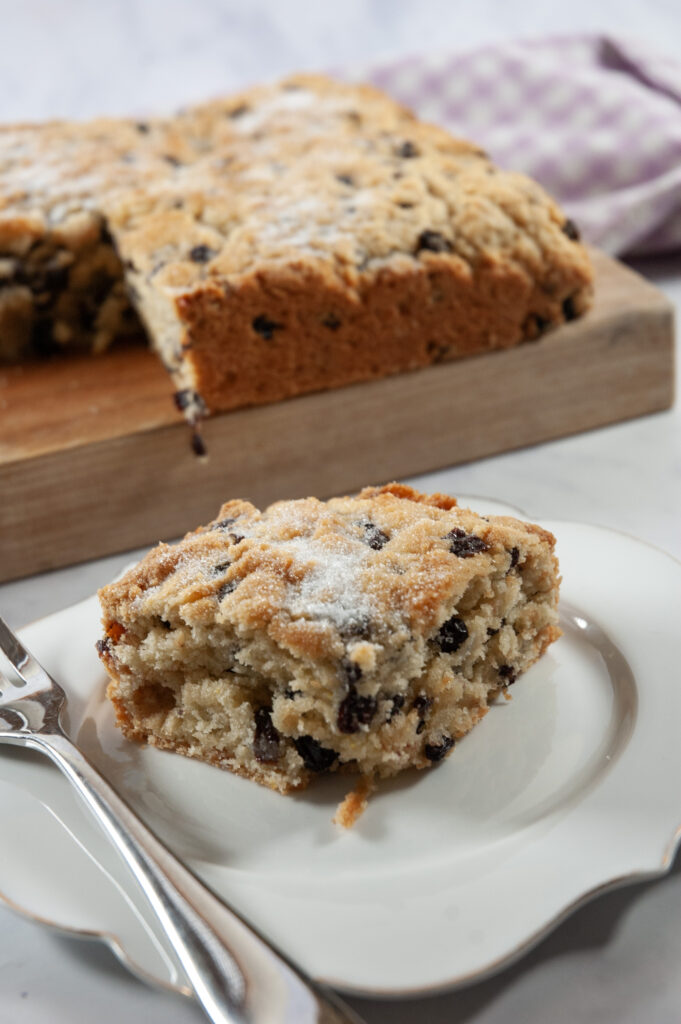
Frequently Asked Questions
Can I bake hevva cake with lard as they traditionally do?
Yes you certainly can bake hevva cake with lard. Traditionally housewives would have used half butter and half lard, so I’d recommend 62g of each for this recipe.
Can I use raisins for hevva cake?
Currants are the traditional fruit for heavy cake but you can definitely use raisins or dried mixed fruit if you are out of currants.
Can I make hevva cake vegan?
I haven’t tested it but I’m sure you could replace the butter with vegetable spread or a vegan ‘butter’. The milk could be replaced with an alternative milk too. Let me know how it goes if you try!
What does hevva mean in Cornish?
The word hevva means to look out or watch. It’s derived from the Cornish word ‘huer’.
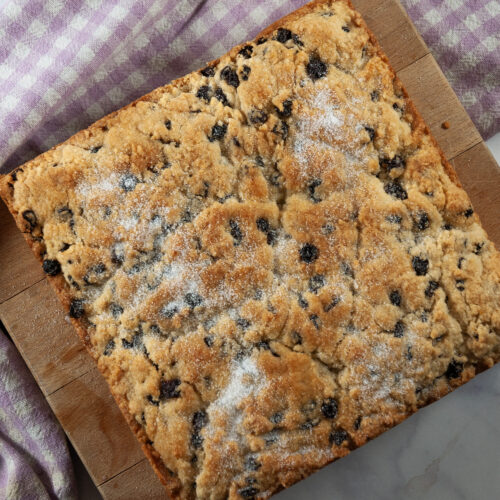
Cornish Hevva Cake (Heavy Cake)
Equipment
- 1 Large bowl
- 1 grater
- 1 Wooden spoon
- 1 deep square cake tin 18 x 18cm
- 1 Sharp knife
- 1 Pastry brush
- baking paper
Ingredients
- 250 g self-raising flour
- 125 g unsalted butter
- 175 g currants
- 75 g caster sugar
- 100 ml whole milk
- 1/2 lemon zest
Instructions
- Rub the butter into the flour until it resembles breadcrumbs.
- Mix in the caster sugar, currants and lemon zest. Add the milk to the dry ingredients and combine to form a stiff dough.
- Line your cake tin with baking paper and press the dough into tin. Make a criss-cross pattern on top of the cake by using diagonal lines.
- Bake at 180 degrees in preheated oven for 30 minutes or until golden brown.
- Allow to cool for a few minutes. When still warm, brush the cake with milk and sprinkle on some sugar. Serve with a cup of tea or coffee!
Notes
Nutrition
More cakes and bakes
Gingerbread pound cake
Peanut butter chocolate chip cookies
Easy carrot and walnut cake
Dulce de leche cake
Peanut cake with caramel buttercream

